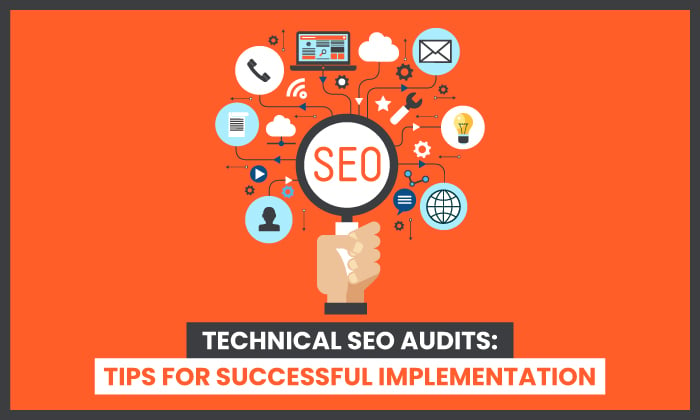SEARCH ENGINE OPTIMIZATION Vs. SEM: Understanding the Trick Distinctions
Worldwide of electronic advertising and marketing, 2 vital approaches that often come up are search engine optimization and SEM. While they might appear comparable, they really serve different objectives and have distinctive strategies. SEARCH ENGINE OPTIMIZATION, which means Search Engine Optimization, focuses on improving a website's visibility and natural position on search engine results pages. On the various other hand, SEM, or Internet Search Engine Advertising, includes paid marketing to enhance a site's visibility on search engines. Comprehending the key differences in between SEO and SEM is important for companies aiming to enhance their on the internet visibility and drive website traffic to their sites. In this article, we will look into the definitions, purposes, and essential parts of both SEO and SEM, shedding light on their special qualities and advantages.

Meaning of SEO
SEO, or Search Engine Optimization, refers to the technique of maximizing internet sites to boost their presence and rankings on internet search engine results web pages (SERPs) It includes various strategies and methods focused on raising natural, or non-paid, website traffic to an internet site. The supreme goal of search engine optimization is to improve a website's on-line existence and attract even more targeted visitors.
Among the crucial aspects of search engine optimization is keyword optimization (https://trendyreporter.com/news/linkdaddy-announces-agency-backlink-local-business-directory-listings-service/458323). This involves performing comprehensive research to recognize relevant key words that customers are most likely to look for when trying to find information or items associated to a particular internet site. By integrating these search phrases tactically into the web site's content, meta tags, and Links, SEO intends to boost the site's importance and position for those specific search terms
An additional crucial consider SEO is on-page optimization. This entails maximizing various aspects on a site, such as title tags, headings, photos, and internal links, to make them even more search engine-friendly (seo marketing). By making certain that these aspects are appropriately structured and relevant to the site's web content, SEO helps browse engines recognize the context and relevance of the site
Furthermore, search engine optimization also includes off-page optimization methods, such as web link structure. This entails acquiring top notch back links from various other trusted web sites, which shows to internet search engine that the site is authoritative and credible. By developing a solid network of back links, SEO improves a site's integrity and enhances its chances of ranking higher in search results.
Meaning of SEM
SEM, or Online Search Engine Advertising, is an advertising and marketing technique that entails promoting web sites and raising their visibility with paid advertising on internet search engine results pages (SERPs) Unlike search engine optimization, which concentrates on enhancing internet sites to improve organic search rankings, SEM utilizes paid marketing to drive web traffic to a web site.
One of the crucial elements of SEM is pay-per-click (PAY PER CLICK) advertising and marketing. When an individual searches for those key phrases, the ads show up at the top or side of the search results.

SEM also consists of other kinds of paid marketing, such as display advertisements, remarketing ads, and purchasing ads. Present ads are banners or visual advertisements that appear on web sites within the Google Display Network. Remarketing advertisements target individuals that have formerly checked out a site, offering them ads as they browse various other websites. Shopping advertisements, on the other hand, advertise specific items and present appropriate details, such as cost and schedule.
Purposes of Search Engine Optimization and SEM
The goals of both seo (SEO) and search engine marketing (SEM) focus on increasing a web site's presence and driving targeted traffic. The techniques and methods used by each differ considerably.
The major objective of SEO is to enhance an internet site's natural search ranking on internet search engine results web pages (SERPs) This is achieved by maximizing numerous components on the web site, such as content, meta tags, and site structure, to make it more appropriate and enticing to online search engine. By doing so, SEO aims to attract more organic website traffic from customers proactively looking for relevant keyword phrases or topics.
On the other hand, SEM focuses on raising a website's visibility via paid advertising on search engines. The key purpose of SEM is to drive targeted web traffic to a site by bidding on keywords and presenting advertisements in internet search engine results. This method allows businesses to get to a larger audience promptly and effectively.

Trick Components of SEO
To effectively apply search engine optimization, it is essential to understand the crucial elements that add to improving a site's natural search ranking. These parts can be generally classified into on-page factors and off-page elements.
On-page factors refer to the components that are straight existing on a web site and can be enhanced for much better online search engine exposure. This includes the site's content, key words usage, meta tags, link structure, page titles, and headings. By optimizing these elements, search engines can much better comprehend the significance and context of more information the web site's content, causing greater rankings.
Off-page variables, on the various other hand, emphasis on external signals that affect a web site's authority and trustworthiness. This includes back links from various other reputable sites, social media signals, and on-line discusses (https://money.buzzingasia.com/news/linkdaddy-announces-agency-backlink-local-business-directory-listings-service/458323). The more high-grade and pertinent back links an internet site has, the far better its opportunities of rating greater in online search engine results pages
Furthermore, user experience is an essential component of SEO. link building. Internet search engine focus on sites that provide a positive customer experience, consisting of fast loading times, mobile-friendliness, and very easy navigation
Key Components of SEM
In comparison to search engine optimization, SEM encompasses a distinct collection of essential components that concentrate on paid marketing and driving immediate presence in internet search engine results. These components consist of internet search engine marketing, also referred to as pay-per-click (PPC) advertising and marketing, keyword research study, advertisement development, and campaign monitoring.
Look engine advertising is a crucial part of SEM. When those key words are looked, it involves bidding on search phrases appropriate to your organization and creating message or display screen ads that will show up in search engine results. With search engine marketing, you can target specific demographics, places, and also time of day to reach your wanted audience.
Keyword research study is one more essential component of SEM. It includes determining the search phrases that your target audience is utilizing to look for services or products comparable to your own. By performing comprehensive keyword research study, you can enhance your advertisements and guarantee they are revealed to the right people at the ideal time.
Advertisement production is the procedure of creating persuasive and compelling ads that will attract individuals to click them. Well-crafted advertisements have a solid call-to-action, appropriate messaging, and a clear worth recommendation.
Last but not least, project monitoring includes tracking and enhancing your SEM campaigns to ensure they are carrying out successfully. This includes tracking metrics such as click-through rates, conversion rates, and return on investment (ROI) to make data-driven decisions and attain the most effective outcomes.
Conclusion
SEO concentrates on maximizing websites to boost natural search positions, while SEM entails paid advertising and marketing to boost exposure on search engine results web pages. Comprehending the differences between SEO and SEM is essential for companies to develop a comprehensive online marketing strategy.
SEARCH ENGINE OPTIMIZATION, which stands for Browse Engine Optimization, focuses on improving a website's presence and natural ranking on search engine results pages. On the other hand, SEM, or Look Engine Advertising, includes paid advertising to raise an internet site's exposure on search engines (Linkdaddy).SEARCH ENGINE OPTIMIZATION, or Browse Engine Optimization, refers to the practice of maximizing web sites to improve their exposure and rankings on search engine results web pages (SERPs)The primary goal of Search engine optimization is to enhance a website's natural search ranking on search engine results web pages (SERPs) SEO concentrates on enhancing websites to boost natural search positions, while SEM includes paid advertising to boost visibility on search engine results web pages